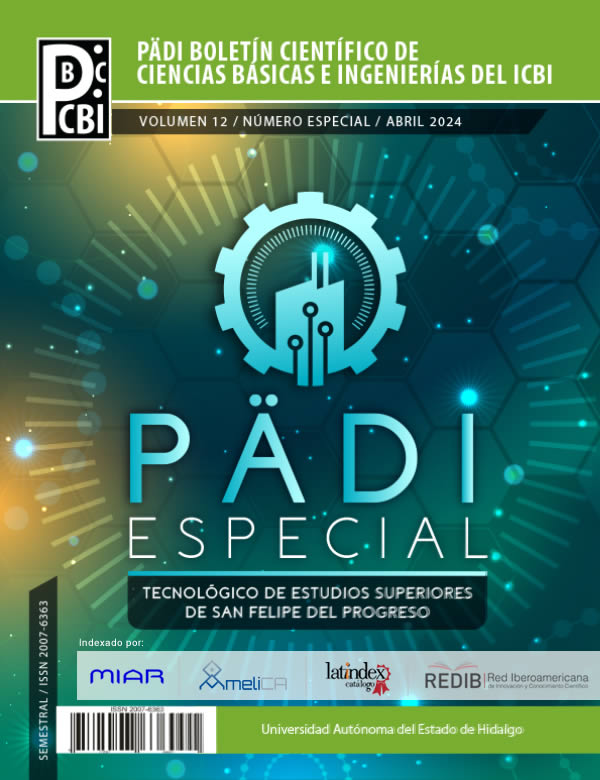Professional skills of TESSFP public accounting students regarding artificial intelligence
Abstract
Artificial intelligence is presented as an opportunity and challenge for the professional practice of public accountants, it has the potential to improve and make more efficient the administrative, accounting, financial and tax processes in an organization, therefore, accounting professionals must develop skills that allow them to face the challenges of new technological trends such as artificial intelligence. Technology has revolutionized the way of classifying, processing and presenting data, even making it even more precise, thus replacing the operational tasks of the public accountant, who must now focus on making decisions by giving intelligent responses to clients, suppliers, partners, government and the general public, for which they must have appropriate job skills. The objective of this research was to diagnose the level of performance of the competencies related to artificial intelligence in the students of the TESSFP public accounting career. The methodological design of the research is quantitative, with a descriptive scope.
Downloads
References
Barrios, T., H., Díaz, P. V., Guerra, Y. (2020). Subjetividades e inteligencia artificial: desafíos para ‘lo humano’ Veritas, 107 Pontificio Seminario Mayor San Rafael Valparaíso núm. 47, pp. 81-107.
Bongianino, C., Sanchez, V., Sosisky, L. (2019). La aplicación de la inteligencia artificial en la contabilidad privada y en el sector gubernamental. Universidad Nacional de la Plata. Facultad de Ciencias Económicas. pp. 2-16.
Buitrago, S.M., Gómez, L.Y., Posada, V. M. (2023). Alternativas para mejorar las competencias laborales del Contador Público de la provincia del San Juan frente a la inteligencia artificial. Trabajo de grado profesional. Universidad de Antioquia, Andes, Colombia, pp. 4-40.
Carmona, H. F. (2020). Influencia de los avances tecnológicos en el ejercicio de la profesión de la Contaduría Pública. Revista Humanismo y Sociedad, volumen 8, pp. 6-21.
Colmenarejo, R. (2018). Ética aplicada a la gestión de datos masivos. Anales de la Cátedra Francisco Suárez, 52, pp. 113-129.
Helbing, D., Frey, B. S., Gigerenzer, G., Hafen, E., Hagner, M., Hofstetter, Y., Zwitter, A. (2019). Will democracy survive big data and artificial intelligence?. In Towards digital enlightenment , pp. 73-98.
Hernández, S. R., Fernández, B. M. (2014). Metodología de la Investigación. Sexta edición. Mc. Graw hill
Linares, M. C., Suárez, Y. M. (2017). Competencias del contador público: Una mirada desde la Educación Superior y los requerimientos de las PyME comerciales en Bogotá. Teuken Bidikay, 8(10), pp. 149-175
López, M. C., Flórez, K. (2006). Análisis de competencias a partir del uso de las TIC. Apertura, 6(5), pp. 36-55.
Manyika, J., Lund, S., Chui, M., Bughin, J., Woetzel, J., Batra, P., Ko, R. Sanghvi, S. (2017). Jobs lost, jobs gained: Workforce transitions in a time of automation. McKinsey Global Institute, pp. 21
Núñez, L. L., Bravo, R. L., Cruz, C. T., Hinostroza, S. M. Competencias gerenciales y competencias profesionales en la gestión presupuestaria Revista Venezolana de Gerencia, vol. 23, núm. 83, 2018 Universidad del Zulia, Venezuela, pp. 771-778.
Palella, S., Martins, F. (2012). Metodología de la Investigación Cuantitativa. Editorial Mc Graw Hill Interamericana, S.A
Pinilla, R. A. (2012), Aproximación conceptual a las competencias profesionales en ciencias de la salud. Revista de Salud Pública, 14 (5), pp. 852-864
Rigo, R. E. (2019). Inteligencia Artificial y Administración Pública: Robots y humanos compartiendo el servicio público. Gestión y Análisis de Políticas Públicas, (22), pp. 140-144.
Ruiz, O. P. (2022). Diplomado en Business Intelligence, Analisís de Datos con excel y sap analystics cloud. Universidad Militar Nueva Granada Facultad de Ciencias Económicas Programa de Contaduría.
Shava, E., Hofisi, C. (2017). Challenges and opportunities for public administration in the fourth industrial revolution. Afican Journal of Public Affairs, 9(9), pp. 203-215.
Tobon, Sergio (2006), Competencias, calidad y educación superior. Bogotá: Magisterio.
Toloza, C. D., López, A. Y. (2023). Los Impactos de la Inteligencia Artificial en el Rol del Contador Público Trabajo de grado para optar por el título de Contador Público, junio, 2023. Universidad cooperativa de Colombia.
Weller, J. (2017). Las transformaciones tecnológicas y su impacto en los mercados laborales. CEPAL.
Yang, Y. (2020). Research on the New Capability Structure of University Accounting Talents under the Background of Artificial Intelligence and Blockchain. 2020 3rd International Conference on Smart BlockChain (SmartBlock), pp. 57-62.
Zawacki, O., Marín, V., Bond, M., Gouverneur, F. (2019). Systematic review of research on artificial intelligence applications in higher education –Where are the educators? International Journal of Educational Technology in Higher Education, pp. 16-39.
Copyright (c) 2024 Alba Cruz-López, Araceli López-Camacho

This work is licensed under a Creative Commons Attribution-NonCommercial-NoDerivatives 4.0 International License.














